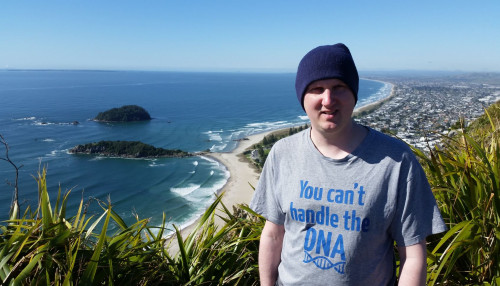Unsticking the biofilms that lead to antibiotic-resistant bacterial infections
Dr Matthias Fellner of Te Whare Wānanga o Ōtākou the University of Otago will develop new drugs targeting biofilms which play an important role in chronic antibiotic-resistant bacterial infections
Published on 3 Whiringa-ā-rangi November 2022
Antibiotic resistance presents a major challenge to public health worldwide. In Aotearoa the number of antibiotic-resistant Staphylococcus aureus related infections are among the highest in the developed world. S. aureus is a bacterium that causes a variety of diseases ranging from local skin or soft tissue infections to invasive chronic infections such as pneumonia. Such infections are a major cause of death, and they also disproportionately affect Māori and Pacific peoples. Invasive chronic infections are often linked with the ability of S. aureus to form biofilms: complex mixtures of biomolecules made by microorganisms, which allow them to stick to surfaces (including human tissue), colonise them, and resist antibiotic treatment. The underlying mechanisms that make S. aureus cling on so tenaciously are, so far, not well understood.

Dr Matthias Fellner. Image: Supplied
In this Marsden Fund Fast-Start grant, Dr Matthias Fellner and his international team will investigate how S. aureus modifies biomolecules within a biofilm to create infections in humans. Previous research by Dr Fellner found several enzymes which can break down lipid (fat) molecules within the biofilm. This project will provide a fuller picture of how these enzymes work, determining their role in how biofilms adhere and grow, as well as how the biofilms counter the immune system and some antibiotics. Dr Fellner will then design and optimise compounds to stop the biofilm enzymes from working. These compounds will be tested on different S. aureus strains, including strains isolated from patients in Aotearoa.
This project offers a novel approach to solving the problem of antibiotic resistance, which could provide more effective treatment options for people with chronic bacterial infections.
